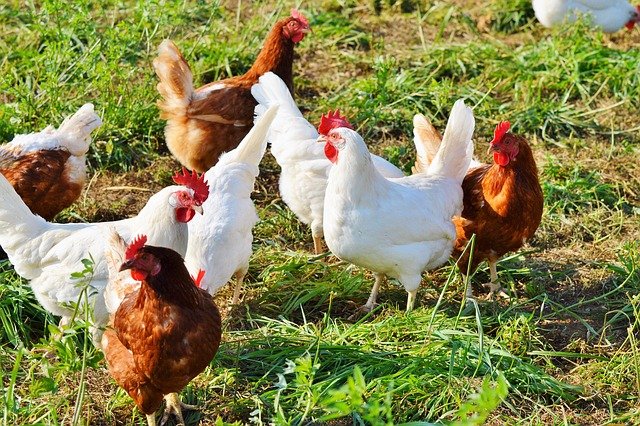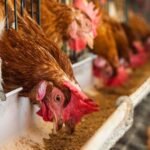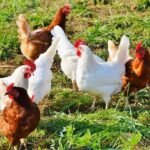Sustainability in poultry feed is driven by pressure for lower carbon footprints, resource efficiency, and better animal welfare, leading to innovations like using insect protein and agricultural by-products, optimizing feed conversion ratios, adopting precision nutrition, and integrating digital technologies for efficient farm management. Consumers also demand sustainably produced food, pushing the industry to find cost-effective and environmentally friendly solutions, such as improving gut health to enhance feed efficiency.
Alternative Ingredients:
- Insect Protein: Research is ongoing to use insect-derived proteins as a sustainable alternative to traditional feed ingredients.
- Agricultural By-products: Utilizing locally grown protein crops and agricultural residues (like fruit and vegetable residues) reduces waste and reliance on conventional ingredients.
- Single-Cell Proteins (SCP): SCP derived from microorganisms is being explored as a sustainable and protein-rich feed ingredient
- Feed Efficiency:
- Gut Health: Improving gut health in poultry enhances feed efficiency, reducing wastage and emissions, which is crucial for environmental sustainability.
- Genetic Selection: Advances in genetics and improved bird performance contribute to better feed conversion ratios, meaning less feed is needed to produce a kilo of chicken or eggs.
- Technology and Digitalization:
- Precision Nutrition: Using sensors, AI, and real-time data analysis helps in optimizing feed formulations and production.
- Automation: Automation in processes like feed management can increase productivity and reduce costs.
- Emission Reduction:
- Feed Additives: Incorporating emission-reducing feed additives into feeding programs is becoming a common practice.
- Manure Management: Improved manure management strategies can also help reduce the environmental impact of poultry production.
- Consumer and Regulatory Pressure:
- Demand for Low-Impact Food: A large majority of consumers prefer food with a low environmental impact, driving changes in production.
- Environmental Regulations: Stricter regulations and pressure from downstream customers are compelling companies to adopt sustainable practices and source materials responsibly.
Benefits of Sustainable Poultry Feed:
- Reduced Environmental Impact: Lowering greenhouse gas emissions, water usage, and resource depletion.
- Improved Animal Welfare: Sustainable practices often lead to healthier, better-managed birds.
- Economic Viability: Efficiency improvements, which are key to environmental sustainability, can also lead to cost savings and profitability.
- Food Security: By making poultry production more efficient, the industry can better meet growing global demand for animal protein.




